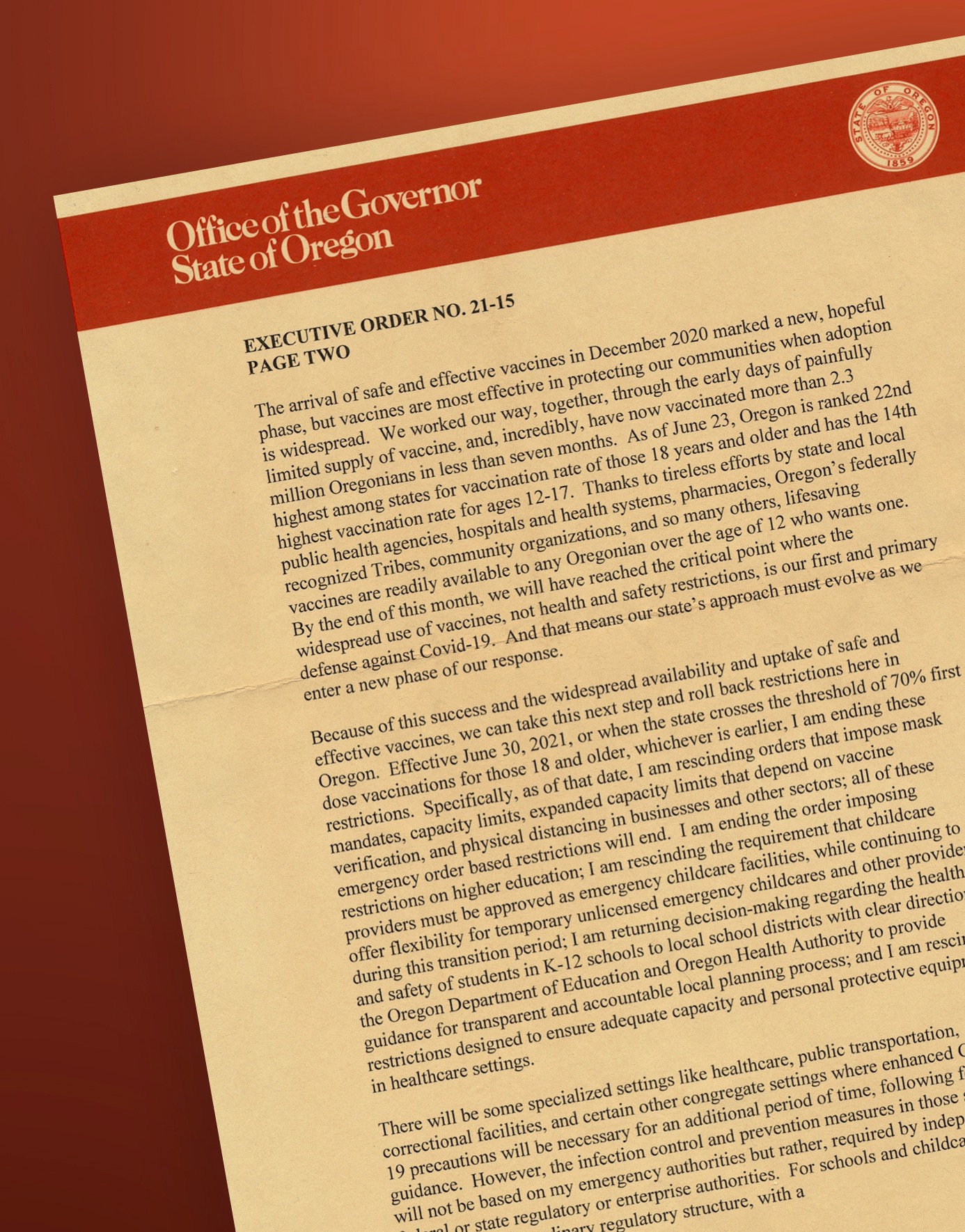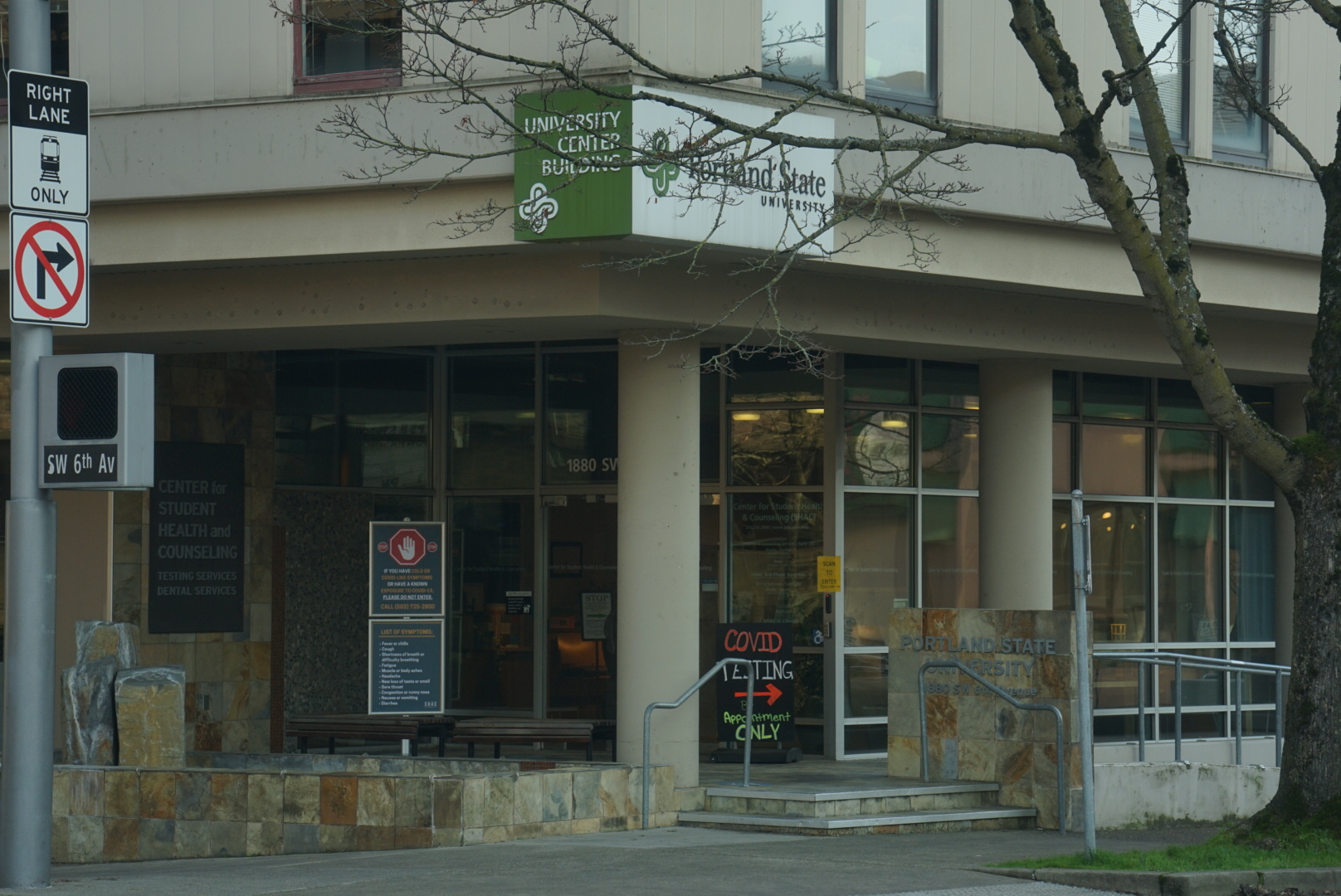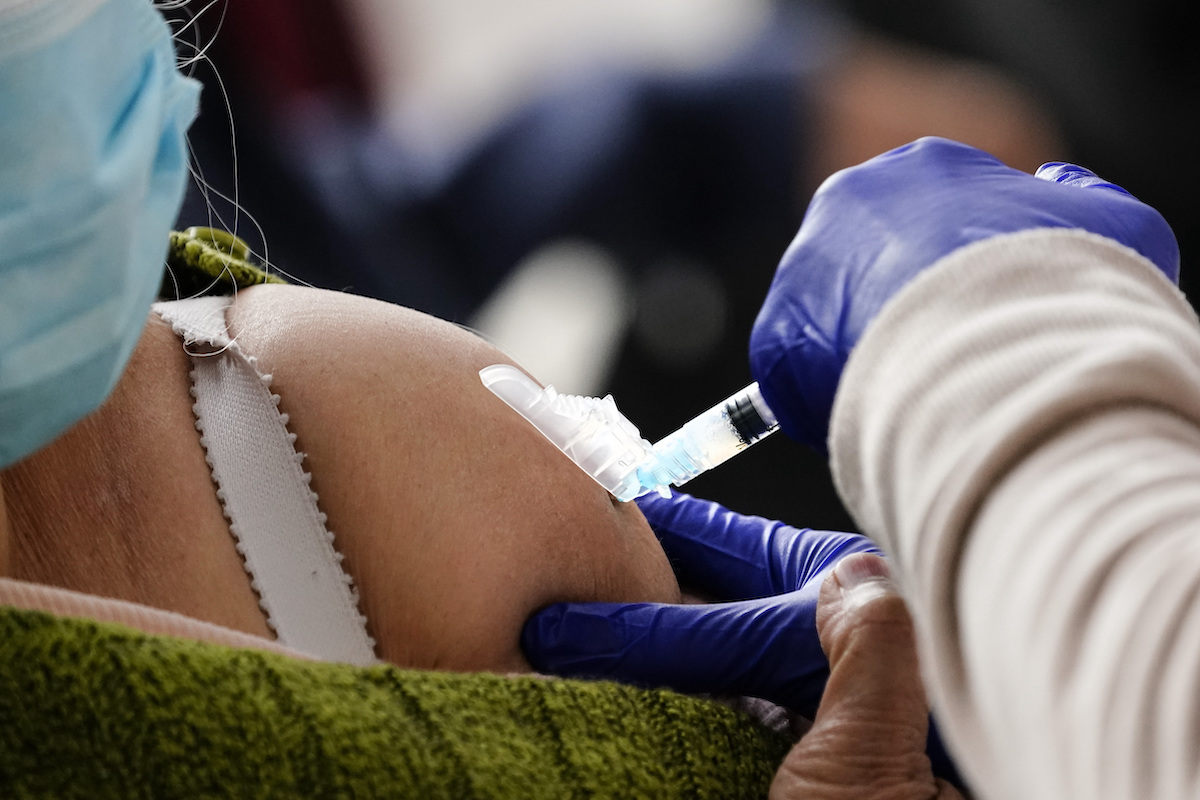Governor Kate Brown announced last Friday an end to the statewide mask mandate, which ended June 30. The single-shot vaccination rate among the eligible population reached 69.9% as of July 1, just below the governor’s goal of a 70% vaccination rate. Brown stated pandemic restrictions would be lifted either once the vaccination goal was met or by June 30, whichever came first.
The announcement comes after 16 months of lockdown and over a year of mask mandates. Oregon’s stay-at-home order was issued March 23, 2020. During the lockdown, many people found the issue of masks to be politically divisive, some clinging to them for safety and others treating them as a threat to their liberties.
Regardless of political affiliation, the repeal of mask mandates represents a significant moment for Oregonians.
“When Oregon reaches 70% of adults vaccinated, or by Wednesday, June [30], whichever comes first, we will lift the safety protocols we have relied on and reopen our economy,” Brown said.
This reopening means that wearing masks will no longer be required, with the exception of some airport, public transit and health care settings. Physical distancing will no longer be required, and businesses and events will no longer be subject to required capacities.
“We find ourselves entering a new chapter of the pandemic,” Brown said. “More than 2.3 million Oregonians are now vaccinated, and we are quickly approaching the point where 70% of Oregon’s adults have received a first dose. Thanks to the widespread availability and adoption of the vaccines, our case rates are declining and our communities are safer.”
OSHA responded by releasing a letter explaining that workplaces no longer require masks, shields or face coverings. The letter specifies that should employees wish to continue wearing masks, shields or face coverings, they are allowed to do so.
Retail stores, K–12 schools, bars, restaurants and other public venues are now open without restrictions or limitations, and some bars and restaurants in the greater Portland area, as well as elsewhere in Oregon, are moving forward with reopening as of June 30.
Some businesses are staying open later, akin to pre-pandemic operating hours, and serving guests indoors, while some still have restrictions in place for the time being in order to make a more seamless transition to post-restriction activities.
Transit and health care jobs will have some restrictions kept in place, due to the essential nature of their work and heightened possibility for transmission of the virus.
To celebrate the reopening of Portland, the city is making all public transit rides free for the weekend of July 3–5. This is being done with hopes that there will be increased traffic to the city for the Independence Day weekend, and with it an economic boon to restaurants and businesses in need of customers.
There is some uncertainty about how Oregon’s universities will react as far as their COVID-19 policies are concerned. With the vaccine roll-out, universities across Oregon have announced that fall classes will be in person, with some stipulations.
Oregon State University, Lewis and Clark College, Willamette University and University of Portland are all requiring students be vaccinated. The University of Oregon has issued recommendations, but no requirements.
Dr. Mark Bajorek, Director of Health Services at PSU and member of the university’s Incident Management Team, says that as it stands, “Portland State recommends the vaccine but the FDA makes it hard to require it.”
He also mentions how policy-wise, the university generally aligns its COVID-19 policies with the state, but can opt for stricter measures. According to the university’s Coronavirus Response page, PSU will return to in-person classes in the fall, and will require both vaccination for COVID-19 and face masks for everyone on campus.
Some students hope the university doesn’t jump on board with the state in a full reopening. Piper Brown, senior Biology student at PSU said, “I have a feeling that shit will hit the fan with the Delta variant and people not getting vaccinated.”
“I’d hope they’d require people getting vaccinated unless they physically can’t,” she said when asked how she hopes the university will respond come fall. “I liked the idea of sanitizing everything down and wearing masks.”
The universities could also choose to err on the side of caution and continue to require or recommend masks, out of potential dangers associated with the Delta variant of COVID-19, which, among other variants, has been reported throughout the state and U.S. at large.
Worry over the Delta variant may have caused a riff between the World Health Organization and the Centers for Disease Control. Earlier in June, the CDC posted on their website saying that fully vaccinated people can resume normal activities without a mask; the WHO disagrees.
With the spread of the Delta variant well underway, the WHO reminds countries—and people—that vaccines can prevent infection but not transmission. They argue that people should continue to wear masks, wash hands and distance themselves until the Delta variant is more under control and vaccination rates are much higher around the globe.




